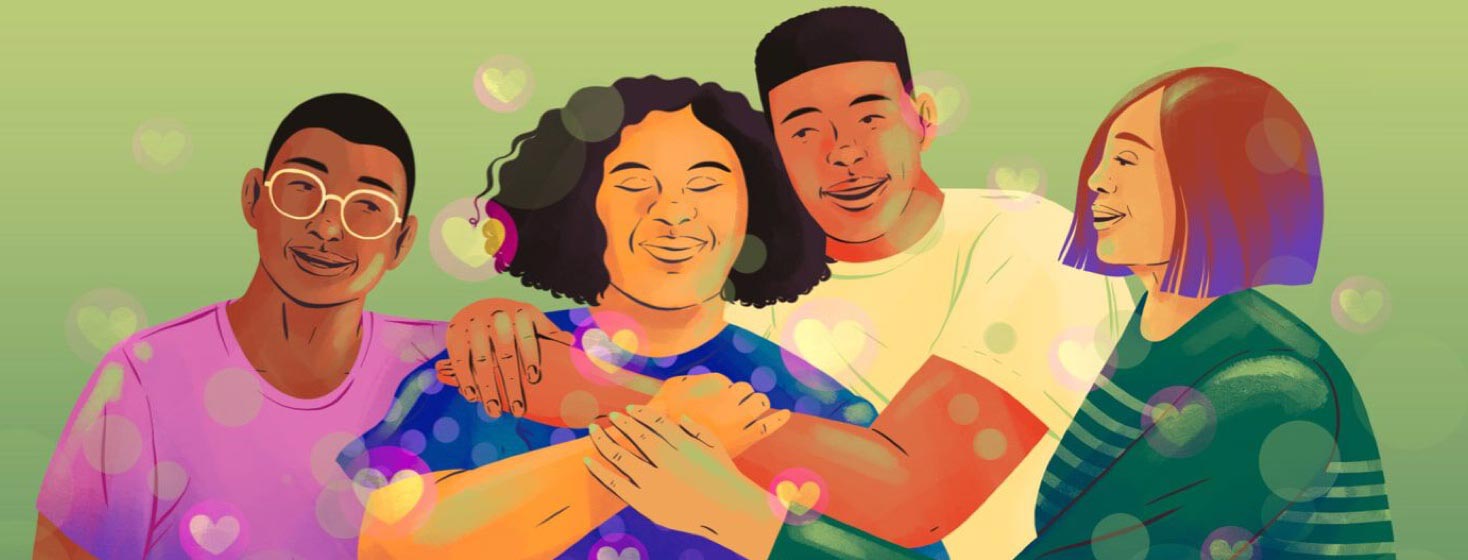Creating A #SickleCellTribe
Feeling alone
As I continue to foster relationships with fellow advocates, one thing rings true for all of us – we grew up not knowing any other person living with sickle cell disease (SCD). This is a common theme for patients in the US and outside its borders. I believe it's due to the fact that sickle cell is still a highly-stigmatized disease even in the 21st century. Oftentimes, the social isolation that patients face, as they transition from childhood to adulthood, lends itself to some unhealthy coping mechanisms and psychological inflexibility.
At the Sickle Cell Leadership Summit, there were moments when I got emotional because I was finally in a room with people that understood me. They didn't question my joint pain or stare when I took my medications instead they offered kindness, compassion, and words of encouragement. Each table was given multiple bottles of water for hydration, with accessible blankets and face masks. The consortium instructed the hotel staff to adjust the room temperature so they could accommodate the needs of the warriors in attendance. I will be honest; the little girl inside wondered why she didn't feel this type of camaraderie in her formative years but I'm so glad that I've built my own #SickleCellTribe today.
What is a #SickleCellTribe?
There is no textbook definition of a #SickleCellTribe but in my own words, a #SickleCellTribe consists of health workers, advocates, patients, caregivers, families, and communities linked by their connection to sickle cell disease with a common goal of raising awareness, sharing resources, seeking out curative therapies and new treatment options, and educating the general public on all things sickle cell.
I coined the phrase #SickleCellTribe in 2020 when I was desperately seeking out transplant survivors because, at the time, my body didn't act like it had been cured of sickle cell disease. I was experiencing increased joint pain that felt much like sickling, dealing with short-term memory loss, insomnia, loss of appetite, and layers upon layers of an identity crisis. I wanted to establish a database of clinical trial participants that would not only benefit me but become a support system for future warriors, young and old, who were considering participating in a curative therapy for sickle cell disease.
Out of difficult situations come great ideas and that gave birth to my brand – Sickle Cell Prodigy. My goal for the organization is to be a hub for sickle cell patients around the world who want to connect and establish their own #SickleCellTribe. Over the last 2 years, I've found my tribe of people and each of them brings a unique point of view and in-depth knowledge of sickle cell disease to the table. Naturally, I find myself drawn to people who are smarter and more experienced than I am.
My #SickleCellTribe consists of 2 seasoned hematologists, 2 primary care physicians, a nurse who specializes in blood diseases, a psychometrist/mental health expert, 5 sickle cell patients, 4 transplant survivors, 2 mentors, a series of close friends (who aren't directly impacted by SCD), and my amazing family.
How to create your #SickleCellTribe
Background search
My number one tip is to do your homework. There are a lot of people online who claim to be experts in sickle cell disease but they are really grifters; stealing content from other advocacy groups or health leaders, and repurposing it as their own. Find people who are accredited – this can be people who author sickle cell-specific content, community health workers, medical students, clinical researchers, policy advisors, medical directors, scientists, mental health certified practitioners, etc.
Make the connection
As scary as it may seem, it's really not that hard. Many advocates and thought leaders have gone virtual and can be reached on platforms like LinkedIn, Instagram, Facebook, etc. Once you've assessed their credibility, send them a courteous email or direct message asking them to connect.
Diversify your tribe
Find people who offer a different skillset from yours. Sickle cell is a progressively debilitating blood disease with a wide array of complications from a stroke to acute chest syndrome, leg ulcers, avascular necrosis, priapism, etc. It also greatly impacts your mental health so as you build your tribe, keep those things in mind. Sickle cell friends are great but no 2 patient experiences are alike so find a hematology provider/warrior who can refer you to other experts when other symptoms arise like depression, organ failure, etc.
The pros of a #SicklCellTribe
People will always show up for you
Sometimes I feel misunderstood by my loved ones; they know the basics of sickle cell disease and that's about it. Being extremely independent, even as a child, meant Wunmi can advocate for herself, she doesn't need us. It's a blessing and a curse because I'm often overlooked. From time to time, when the load gets heavy, which happens often, no one checks in because they assume I can handle anything. My #SickleCellTribe understands those nuances and continues to offer help even when I don't need it.
It's a learning opportunity
When you surround yourself with intelligent people, those traits rub off on you. Working in advocacy puts me in a constant state of learning new things, which I really do enjoy. It helps you stay informed on the latest treatment options for SCD and grants you access to clinical research studies that are available in your region.

Join the conversation